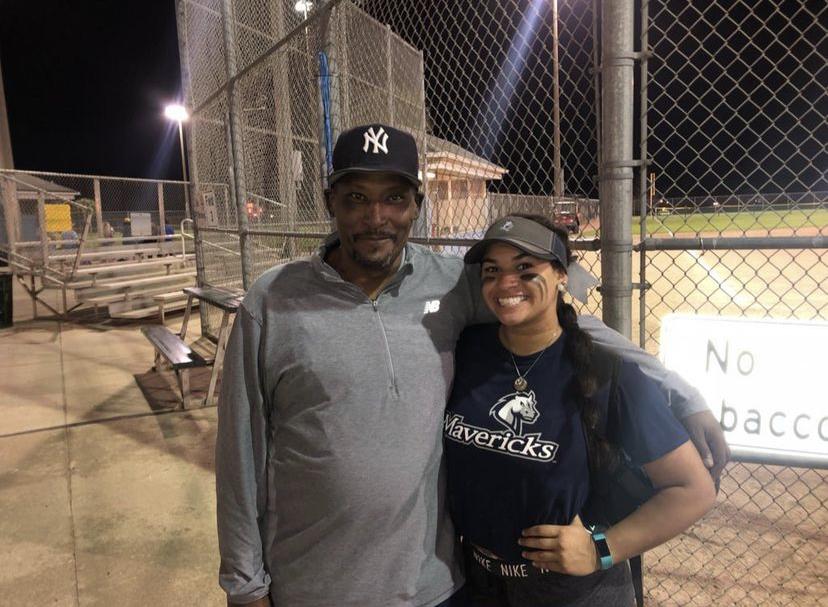The Mercy Student Support System Rises Above Expectation
“It feels like falling down a dark void with hands reaching out to grab me, but nothing I do will get me to them. The further I fall, the smaller the hole appears leaving me feeling numb. That’s what depression feels like.”
Nineteen-year-old collegiate athlete Sabrina Gonzalez has been battling depression with a brave face since 2019. She was going into her sophomore year of college before she lost her father due to congestive heart failure. With the help of Mercy College’s staff, she has made great strides towards her recovery during her years at college.
Shakuntala Ramdas, who currently works in the Mental Health Counseling Department describes depression as “A mental health disorder that affects your mood, motivation, energy level, sleep patterns, appetite and your relationships (friendships, family and work life). There can also be physical symptoms as well.”
She remembers the incident well, unfortunately. Sabrina’s family called her on a Thursday saying that her father was in the hospital.
“This was not new news to me because he was always in and out when he wasn’t feeling good. But, this time I knew in my heart that it was different,” she said. Her family bought her a plane ticket and she rushed back to Florida.
Her flight was on Friday and when she arrived at the hospital, her father was already on life support. “It was too late to physically have a conversation with him, and he passed away the very next day.”
With all of the chaos in the hospital, Sabrina was feeling unattached to reality. Her normal day to day routines were inevitably changing whether she liked it or not. Questions like, “Who’s going to walk me down the aisle?” began to ponder in her mind.
After everything that happened, her mother recommended that once she got back to school, she should reach out for some outside help. Sabrina looked into the counseling center at Mercy once she returned from Florida. Although, she didn’t start therapy right away.
Ramdas explains why she believes it’s hard for some clients to start therapy.
“To some degree there is still stigma, especially in various ethnic minority groups about counseling and mental health. Also, it’s hard to find the right therapist. But when it comes to depression, the motivation to seek help and the fear that it won’t work can often contribute to clients not wanting to start counseling.”
After avoiding therapy for some time Sabrina’s team Strength and Conditioning coach, Dan Steinberg, took matters into his own hands. “One day he texted me to come to his office. I thought nothing of it because he and I have a good relationship so it did not even cross my mind that he was going to take it upon himself to guide me to get help. He walked me to the Counseling Center and told me he wasn’t leaving until I sat down in the chair and started my session.”
This began her road to recovery.
After going to a couple sessions, she learned that grieving stages have a difficult process. “It is not a linear line, it is more like a roller coaster. I went through something that most people my age fear of.”
Her therapist constantly reminded her that it is okay to feel the emotions she has and to express them freely. When she’s down, she likes to do all of her father’s favorite things to help cheer her up. He was her best friend, she wants to live her life through him and think of life just the way he did. As a beautiful blessing.
“It can negatively impact someone’s ability to function on a daily basis. It stops them from being able to concentrate so it takes them longer to complete tasks,” says Ramdas.
When times became rough, Sabrina struggled in the classroom just as Ramdas said would happen. “I have always been a straight A student who was motivated and never procrasted school work. But I found myself not wanting to go to class and having no desire to do schoolwork.”
Prof. Layton, Canger, and Kita listened to Sabrina’s struggles and helped her in every way they could.
“I vividly remember coming to Prof. Kita and explaining that I was not ready for a test because I was struggling mentally and he told me I had all the time in the world and was very sympathetic. It was heart-warming to see professors and advisors care for their students on a personal and emotional level.”
Through it all she has had plenty of guidance available. Whether it was from her Coaches or the Guidance Counseling staff. Her biggest take from it all was to consistently surround yourself with love.
“Therapy allows you to have a safe place to talk about your mental health and explore how to manage things,” says Ramdas. “Our job is to support our clients through those difficult moments in their life.”

Ariana Ricci is currently a Senior at Mercy College. She is a collegiate athlete that is a part of the Student Athlete Advisory Committee and the Maverick...








